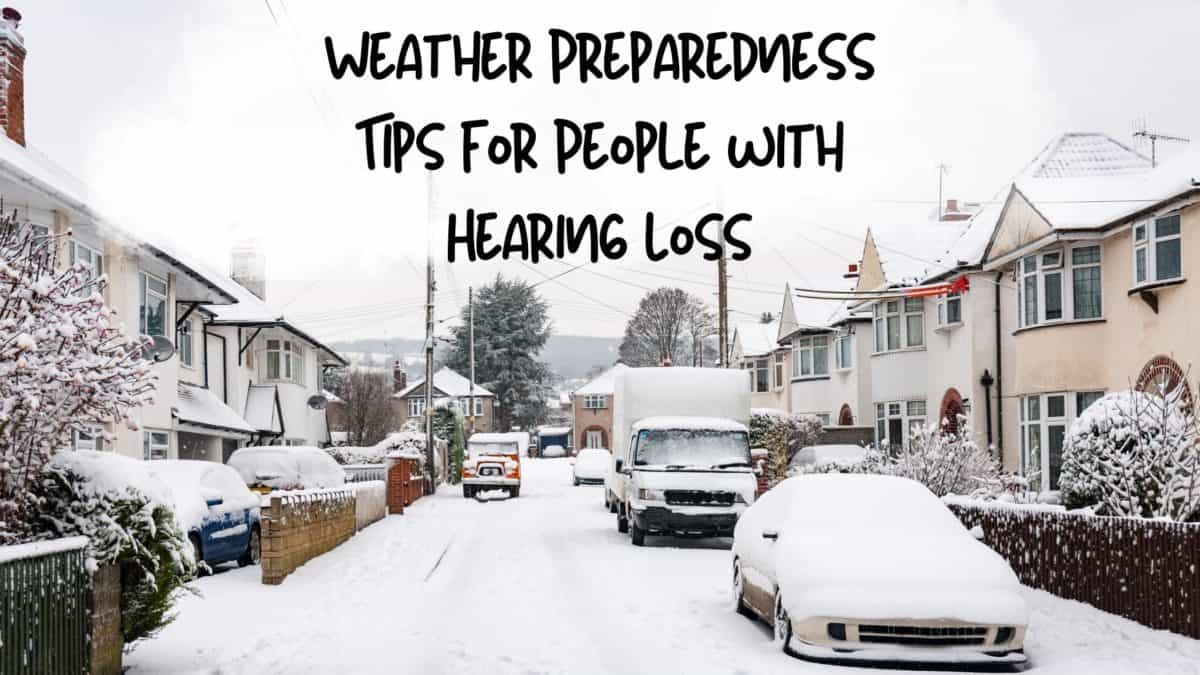
Weather Preparedness Tips for People with Hearing Loss
Making plans for unanticipated disasters and weather events if you require hearing aids to address your hearing loss might be difficult if you are not taking the necessary safeguards. Radio and television broadcasts are frequently used to spread emergency preparedness and weather awareness messages. This information must be visible to accommodate people with various hearing difficulties.
The need to organize, practice, and save knowledge and materials particular to hearing loss is critical in various situations, from natural disasters to unanticipated home issues. Planning for the communication needs of someone with a hearing loss during an emergency can help minimize stress and perhaps save a life.
Check if you have all the necessary safety alert devices installed in your home
Whether it’s a fire, hurricane, tornado, earthquake, or gas leak, an emergency can happen at any time. It’s critical to ensure that you’ve taken as many safeguards as possible in your house to notify you or your hearing-impaired loved ones in the event of an emergency.
Fire Safety Alerts: Devices that use a bed shaker or flashing lights to notify a person with hearing loss of a fire or smoke in the house are available. The majority of devices are compatible with existing smoke detectors. Contact your local fire department or fire marshal for free smoke alarms built for those with hearing loss.
Weather Alert Radios: Weather alert radios are available that listen to the National Oceanic and Atmospheric Administration’s (NOAA) National Weather Service broadcast 24 hours a day, seven days a week. Individuals with hearing loss can use weather alert radios, which display NOAA alerts in closed caption messaging, vibration, or flashing lights. NOAA also maintains the NOAA Weather Wire Service (NWWS), which provides direct email transmission.
Smartphones: Smartphones provide a wide range of visual alerts, such as the Federal Communications Commission’s Wireless Notifications System. Mobile apps and smartphones designed exclusively for those with hearing loss are essential for efficient and successful emergency and weather information transmission. Phones are handy during power outages and home Internet outages since, unless adjacent cellular towers are damaged, they tend to keep operating.
Prepare a first aid kit
The actual contents of an emergency kit for anyone, such as food, first treatment, and clothing, should not change, but additional items that can enhance communication must be considered when someone uses hearing aids.
- If you don’t have access to purchase or refresh batteries, keep four weeks’ worth of hearing aid batteries in your emergency pack.
- If there is no shelter from the elements, a waterproof/sealed container large enough to house hearing aids can be used.
- Consider getting a battery charger that you can take with you. Because rechargeable batteries only last roughly eight hours, rechargeable hearing aids are more difficult to utilize in an emergency. A portable battery charger could come in handy in this situation. Because the chargers themselves need to be charged, use them sparingly.
- Keep the hearing aid company’s phone number handy if the device needs to be repaired.
- If you don’t have access to your hearing aid, don’t forget to use pen and paper to communicate with friends, family, and emergency personnel. Another antiquated device, the landline telephone, could be helpful in an emergency. Even when cell phones, the Internet, and power are off, landlines can still function.
Make an effort to communicate with your neighbors
With or without an emergency, your local community can be highly beneficial. Create a support system. This is true for everybody who lives alone, regardless of whether or not they have hearing loss.
So that you don’t have to face an emergency alone, enlist the help of two or three friends, neighbors, or coworkers. Make a plan with your network partners to stay in touch in the event of an emergency. They should also be aware of your medical issues and requirements and where to obtain emergency and medical supplies.
We can help you stay on top of your hearing health!
It’s critical to ensure that you’re hearing your best! Contact us today to learn more about the best strategies to deal with your hearing loss. We offer a full range of hearing healthcare services.
